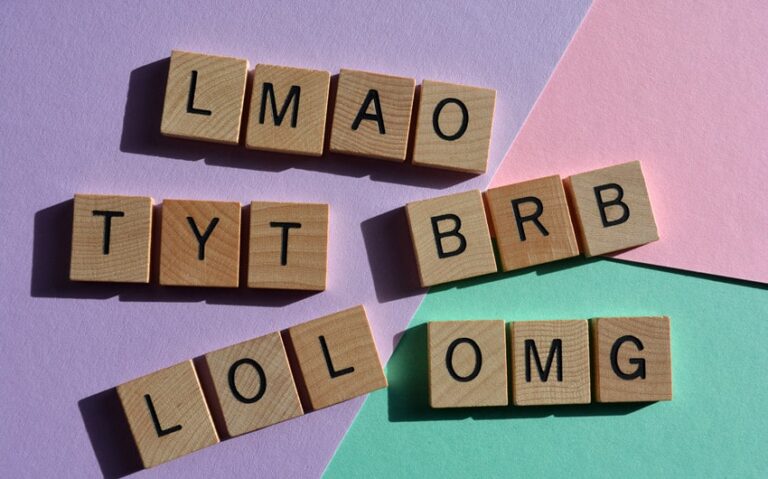Discover Opps Meaning in a Text Message and How to Use It
In today’s fast-paced world of texting, it’s easy to come across new slang or abbreviations that leave you wondering what they mean. One such term is “opps,” which can pop up in casual conversations and social media posts. Whether you’re texting with friends or just scrolling through your feed, it’s important to understand what “opps” really means in this context.
In this article, we’ll break down the opps meaning in a text message, exploring its origins and how to use it naturally in your everyday chats. Let’s dive in and clear up any confusion!
What Does “Opps” Mean in a Text Message?

In a text message, the term “opps” typically refers to “opposition” or “opponents.” It is often used in a casual or slang context to describe someone who is considered an enemy, rival, or someone on the opposing side. The word “opps” is most commonly associated with urban slang, especially in the context of rap and hip-hop culture, where it refers to people or groups with whom there is conflict or hostility. For instance, someone might refer to a group of individuals they have issues with as “opps.”
However, it’s important to note that “opps” can also sometimes be a typo or abbreviation for “oops,” a word used to express a minor mistake or accident. In this case, the meaning shifts from conflict-related slang to a simple acknowledgment of an error, such as when someone accidentally sends the wrong message or makes a small mistake.
The key to understanding the meaning of “opps” in a text is paying attention to the context of the conversation. If the message is talking about rivalry or conflict, it likely means “opponents.” If it seems related to an error, it might just be a casual typo for “oops.”
This dual usage of “opps” highlights the importance of understanding the conversation’s tone and the people you’re texting with to avoid any confusion.
Origins and Popularization of “Opps”
The term “opps” originated from urban slang, particularly within the context of hip-hop and street culture. It is a shortened form of the word “opposition” or “opponents,” used to refer to rivals or enemies. This term gained traction in the early 2010s, especially through its use in rap music, where artists would reference their “opps” to describe adversaries, whether in a competitive or conflict-ridden sense.
One of the key factors that popularized “opps” was its frequent appearance in rap lyrics. Artists like Chief Keef and other drill music rappers from Chicago played a significant role in bringing this term into the mainstream. In their music, they often used “opps” to refer to rival gangs or people they were feuding with, and the term quickly became part of the broader hip-hop lexicon.
Over time, “opps” transcended its specific gang-related origins and started to be used more broadly in everyday conversations to describe enemies, opponents, or simply those who are not on your side.
Social media also played a major role in spreading the term “opps” to a wider audience. Platforms like Twitter, Instagram, and TikTok allowed slang terms like “opps” to gain rapid exposure beyond their original communities. As rap culture became more mainstream and social media users adopted the slang, “opps” found its way into more casual and varied settings.
Though rooted in urban culture, the term’s use expanded into broader conversations, where people started using “opps” to describe not only real-life adversaries but also more lighthearted conflicts, like rival sports teams or even playful competition between friends.
Despite its slang roots, “opps” has evolved to be widely understood, especially by younger generations familiar with rap culture and social media trends. Its adaptability and relevance in various contexts have cemented its place in modern texting slang, making it a term that continues to resonate across different subcultures.
When and How to Use “Opps” in Texts

Using “opps” in text messages can be straightforward, but it’s important to understand the context to ensure your message is clear and appropriate. Whether you’re using it to describe rivals or simply making a typo, the timing and tone of your message matter. Here’s a breakdown of when and how to use “opps” in various scenarios.
1. When Talking About Rivals or Enemies
The most common way to use “opps” in a text is when referring to opposition or enemies. This meaning is especially prevalent in conversations that involve competition, conflict, or rivalry. For example, if you’re talking about a group or person you’re in disagreement with, you can refer to them as “opps.” It’s particularly useful in situations where there’s tension, and you want to communicate that someone is part of an opposing group or against you in some way.
For instance, in a casual conversation about competition at work or with sports teams, you might say:
- “We need to stay sharp and keep an eye on the opps.”
- “The opps are spreading rumors about us again.”
2. When Referring to Social Media or Cultural References
You can also use “opps” in texts when referring to enemies or rivals in the context of social media. As “opps” has become more mainstream, many people use it to describe people they disagree with online, such as trolls, haters, or competitors on platforms like Instagram, Twitter, or TikTok.
For example, if someone is getting negative comments or facing online drama, they might say:
- “The opps are all over my latest post.”
- “Can’t believe the opps are coming for me in the comments.”
3. When You Want to Be Playful or Ironic
Another way to use “opps” is in a playful or ironic tone. You don’t always have to use it in a serious context about actual enemies or rivals. Many people use slang in a joking way, and “opps” is no exception. If you’re having fun with friends and want to be dramatic or exaggerate a situation, you can throw “opps” into the conversation.
For example:
- “I can’t believe you didn’t invite me to the party. You’re an opp now!”
- “I forgot my wallet, opp move for sure!”
4. When Communicating in Casual or Informal Settings
“Opps” is best suited for casual conversations with friends, coworkers, or peers. It’s not appropriate for professional or formal settings, as it can come across as too informal or confusing. Keep “opps” for personal texts, group chats, or social media exchanges where slang is commonly used.
In a group chat among friends, you might say:
- “We’re getting together later, but no opps allowed!”
- “The opps are out here causing drama again.”







